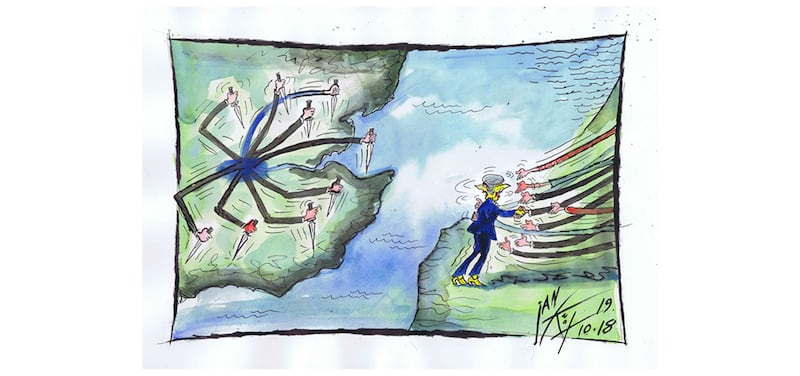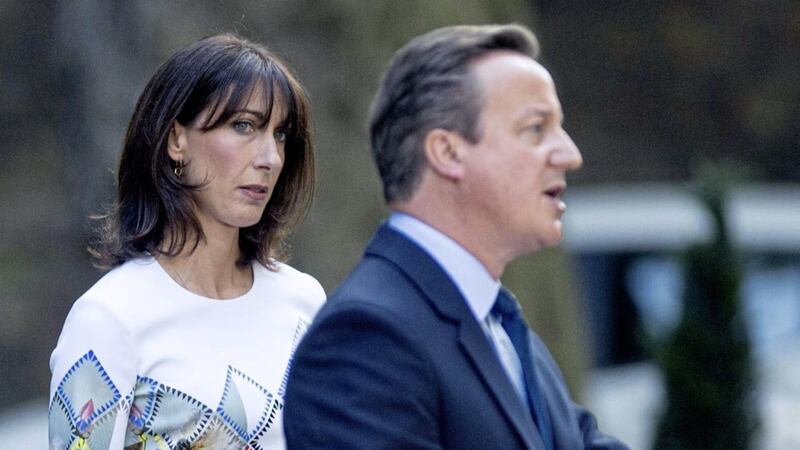The question I'm asked most often is whether I regret my decision to vote Leave in June 2016; followed by, how I would vote if there was another referendum - something I suggested was quite likely as far back as the autumn of 2016.
But no, I don't regret my vote and I would vote the same way again.
In a series of articles during the referendum campaign I set out my personal reasons for supporting Leave. I did so with civility, because many friends - whose opinions I listened to with respect - fundamentally disagreed with me.
I wasn't expecting David Cameron to offer a referendum. But he did. I have had long-standing objections to a single currency, a collective foreign policy, the building of an EU army, increasing political/constitutional centralisation and the creation of a super state which would, eventually, go toe-to-toe with the USA, China and Russia. That's why I voted Leave. That's why I would vote Leave again.
Time and time again, during the referendum campaign and during the last year's chatter about a second referendum, I have asked Remainers to address my concerns. They don't. Indeed, many of them don't even agree on those issues: some favouring a single currency, some not; some believing that a joint foreign policy makes sense, others not...and so on.
Read more:
- Theresa May's 'moment of truth' summit passes with no deal
- Anti-Brexit rally to take place in Belfast tomorrow
- DUP's Nigel Dodds says extended post-Brexit transition period would cost UK billions of pounds
I didn't buy into some of the claims made by both Leave and Remain during the campaign. I dismissed Cameron's 'Project Fear': 'If 43 years membership of the EEC/EC/EU has been so good for the UK, then why isn't Remain promoting those values and benefits rather than warning about economic catastrophe and socio/political collapse?' I dismissed Leave's 'rose-tinted picture of a once and future utopia' and stressed that a decision to exit the EU would probably bring a few years of economic uncertainty. Mind you, I also pointed out that two of the worst economic crises in my lifetime - 1974-1979 and the crash of 2007 onwards - happened while we were members of the EEC/EU. Put bluntly, EU membership didn't protect anyone from harsh economic winds.
Of course I gave consideration to matters closer to home, particularly threats to the Union. But there have been threats to the Union for most of my lifetime. The IRA's 1956-62 border campaign began three years after I was born. It rebooted again in 1969 and ran through to 1997. And since the 1998 GFA, which I supported (It's amazing, by the way, how many GFA-voting Remainers have ignored the fact that Northern Ireland is now more electorally polarised and politically toxic than it has ever been thanks to that agreement), Sinn Féin particularly and nationalism in general have upped the ante on 'eventual unity.' In other words, voting Remain wouldn't, in the long run, have meant that the push for Irish unity was going to diminish.

As for the border. I have always argued that a 'soft' solution was always going to be in the best collective interests of London/Dublin/Brussels/NI. That remains my view. And I think that will, when the final deal is done, be the solution. When you look at the countdown to April 10, 1998, it is astonishing how many things we were assured were impossible a few months earlier, suddenly became possible. Again, when the DUP and Sinn Féin began their below-the-radar conversations in 2005, most people dismissed the chances of a deal, let alone a deal headed by Ian Paisley and Martin McGuinness. So yes, there are problems/challenges for the Union (the entire UK, perhaps) and the border: but all are capable of resolution. That was my belief in June 2016. It remains my belief.
One thing I didn't factor into my analysis during the referendum campaign was Cameron's response to the result. He had said that there was no Plan B if Brexit carried the day and that he would 'implement the will of the people of the United Kingdom.' I also assumed that he would have instructed the executive branch of his government to prepare for a possible Leave - even if it looked unlikely - and to have begun that preparation on May 8, 2015, when it was clear he had won the general election. But he hadn't: which explains why he scuttled from office within hours of the result and left chaos at the heart of both the government and the Conservative party.
The other thing I didn't factor into my thinking was how catastrophically dreadful the Commons would be when it actually came to implementing the will of the people. The most important moment for the UK since 1939-45 and the two main parties have proved themselves incapable of either governance or debate. And it's that startling fact which should worry both Leavers and Remainers more than anything else.








